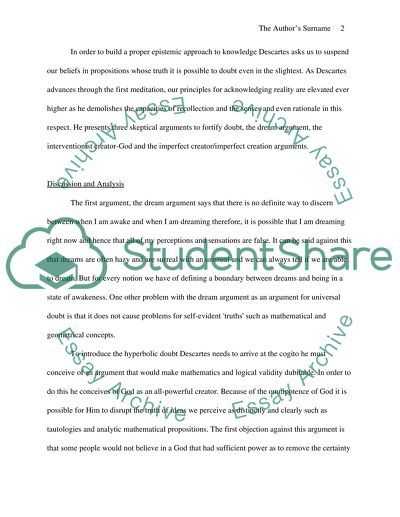Cite this document
(“Descartes Philosophy Essay Example | Topics and Well Written Essays - 2000 words”, n.d.)
Retrieved from https://studentshare.org/environmental-studies/1415125-descartes-philosophy
Retrieved from https://studentshare.org/environmental-studies/1415125-descartes-philosophy
(Descartes Philosophy Essay Example | Topics and Well Written Essays - 2000 Words)
https://studentshare.org/environmental-studies/1415125-descartes-philosophy.
https://studentshare.org/environmental-studies/1415125-descartes-philosophy.
“Descartes Philosophy Essay Example | Topics and Well Written Essays - 2000 Words”, n.d. https://studentshare.org/environmental-studies/1415125-descartes-philosophy.


